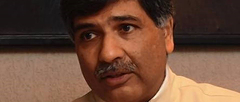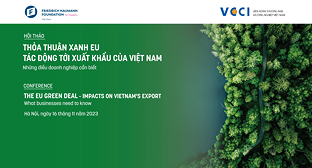Bangladesh, Sri Lanka must shun protectionism to attract FDI, shore up exports to India: World Bank
26/09/2018 12:00

Focus on connectivity and reduction in trade costs have led to a steady rise in India’s exports to South-Asia. But neighbours like Bangladesh, are failing to reap the benefit of the opening up of the Indian market due to their protectionist strategies and inadequacies in attracting FDI, says an World Bank economist.
Talking to BusinessLine on the sidelines of a programme organised with CUTS International in Kolkata, Sanjay Kathuria, Lead Economist and Coordinator, South East Asia regional integration of World Bank, ruled out the role of non-tariff barriers (NTBs) in limiting India’s imports from South-Asia.
Referring to a recent World Bank study, ‘A Glass Half Full: The promise of regional trade in South-Asia’ , he said: “Our numbers are not showing high implicit restrictiveness arising from NTBs.” The legitimate non-tariff measures (NTM) are also found to be on par with the global standards.
What the exporters from neighbouring countries (to India) often face are perceived NTBs, arising out of lack of awareness about standards, lack of capacity to meet such standards and lack of mutual trust which is pervasive in the region, according to Kathuria.
The World Bank feels that as a major country, India has the responsibility to improve awareness about the standards and improve the capacity of neighbouring economies to meet them. “India is doing such capacity building in Bangladesh (by way of certifying agencies etc) and has started doing so in Sri Lanka,” he said.
Failed SAFTA
While India reduced tariff lines as per the South Asian Free Trade Agreement (SAFTA) and offered duty-free import to less developed economies (like Bangladesh), the measures remained one sided as the neighbours didn’t liberalise their economies, feels Kathuria.
Approximately 39 per cent of Indian exports to South Asia are on sensitive list attracting high tariff wall. In contrast, 6 per cent of goods imported by India from South Asia are on the sensitive list. ASEAN has less than one per cent goods on the sensitive list.
“Para-tariff is a peculiar problem in South Asia and the prime culprits are Bangladesh, Sri Lanka and Pakistan. In Sri Lanka and Bangladesh the average nominal tariff doubles to 22.4 percent and 25.6 percent respectively due to para-tariffs,” he said.
The bank outlined the detailed impact of para-tariffs tariffs on different types of goods traded in the region. India too had such para-tariff (though of smaller incidence) in the pre-GST period. Overall, protectionism of neighbours pushes the average tariffs in South Asia to 13.6 per cent as against 6.3 per cent in the rest of the world.
Low FDI
Interestingly, despite the high tariff wall, India’s exports to neighbouring economies are rising at a faster rate than the bank had predicted in the past.
In 2012, the World Bank predicted that entering SAFTA would increase Bangladesh’s exports to India at 182 per cent, while Indian exports to Bangladesh will increase by 126 per cent. In reality, Indian exports to Bangladesh grew by 126 per cent, while Bangladesh’s exports to India grew only 17 per cent, between FY12 and FY18.
Kathuria gives credit to India’s rising exports to Delhi’s sustained focus on connectivity and the competitiveness of Indian industry. On the other hand, Bangladesh is missing out on the opportunity of accessing inputs at a lower cost and improving the efficiency by not implementing the FTA.
The prevailing environment is also leading to their failure in attracting FDI. “Unless there is more intra-regional investment, the two-way trade cannot be optimised,” he said.
When asked about India’s low FDI stock in Bangladesh - about half a billion dollar– he said, “India’s neighbours need to realise Indian investors are global players. So they will simply not walk in the neighbourhood. Bangladesh has to compete with a Odisha or Bengal, AP for investment. The link between trade and investment is critical, without that value chain will be missed out.”
Talking to BusinessLine on the sidelines of a programme organised with CUTS International in Kolkata, Sanjay Kathuria, Lead Economist and Coordinator, South East Asia regional integration of World Bank, ruled out the role of non-tariff barriers (NTBs) in limiting India’s imports from South-Asia.
Referring to a recent World Bank study, ‘A Glass Half Full: The promise of regional trade in South-Asia’ , he said: “Our numbers are not showing high implicit restrictiveness arising from NTBs.” The legitimate non-tariff measures (NTM) are also found to be on par with the global standards.
What the exporters from neighbouring countries (to India) often face are perceived NTBs, arising out of lack of awareness about standards, lack of capacity to meet such standards and lack of mutual trust which is pervasive in the region, according to Kathuria.
The World Bank feels that as a major country, India has the responsibility to improve awareness about the standards and improve the capacity of neighbouring economies to meet them. “India is doing such capacity building in Bangladesh (by way of certifying agencies etc) and has started doing so in Sri Lanka,” he said.
Failed SAFTA
While India reduced tariff lines as per the South Asian Free Trade Agreement (SAFTA) and offered duty-free import to less developed economies (like Bangladesh), the measures remained one sided as the neighbours didn’t liberalise their economies, feels Kathuria.
Approximately 39 per cent of Indian exports to South Asia are on sensitive list attracting high tariff wall. In contrast, 6 per cent of goods imported by India from South Asia are on the sensitive list. ASEAN has less than one per cent goods on the sensitive list.
“Para-tariff is a peculiar problem in South Asia and the prime culprits are Bangladesh, Sri Lanka and Pakistan. In Sri Lanka and Bangladesh the average nominal tariff doubles to 22.4 percent and 25.6 percent respectively due to para-tariffs,” he said.
The bank outlined the detailed impact of para-tariffs tariffs on different types of goods traded in the region. India too had such para-tariff (though of smaller incidence) in the pre-GST period. Overall, protectionism of neighbours pushes the average tariffs in South Asia to 13.6 per cent as against 6.3 per cent in the rest of the world.
Low FDI
Interestingly, despite the high tariff wall, India’s exports to neighbouring economies are rising at a faster rate than the bank had predicted in the past.
In 2012, the World Bank predicted that entering SAFTA would increase Bangladesh’s exports to India at 182 per cent, while Indian exports to Bangladesh will increase by 126 per cent. In reality, Indian exports to Bangladesh grew by 126 per cent, while Bangladesh’s exports to India grew only 17 per cent, between FY12 and FY18.
Kathuria gives credit to India’s rising exports to Delhi’s sustained focus on connectivity and the competitiveness of Indian industry. On the other hand, Bangladesh is missing out on the opportunity of accessing inputs at a lower cost and improving the efficiency by not implementing the FTA.
The prevailing environment is also leading to their failure in attracting FDI. “Unless there is more intra-regional investment, the two-way trade cannot be optimised,” he said.
When asked about India’s low FDI stock in Bangladesh - about half a billion dollar– he said, “India’s neighbours need to realise Indian investors are global players. So they will simply not walk in the neighbourhood. Bangladesh has to compete with a Odisha or Bengal, AP for investment. The link between trade and investment is critical, without that value chain will be missed out.”
September 26, 2018
Source: The Hindu Business Line
Source: The Hindu Business Line
Các tin khác
- Businesses capitalize on recovery momentum to explore market expansion (17/04/2024)
- Canada is second largest consumer of Vietnamese pangasius in CPTPP bloc (17/04/2024)
- India’s tariff removal on several US products benefiting farmers: Katherine Tai (17/04/2024)
- Thailand Contemplates Protective Tariffs on Chinese Imports Amidst Surging Trade Deficit (17/04/2024)
- Vietnam becomes largest banana exporter to Chinese market (17/04/2024)
 Home
Home
 About Us
About Us




















